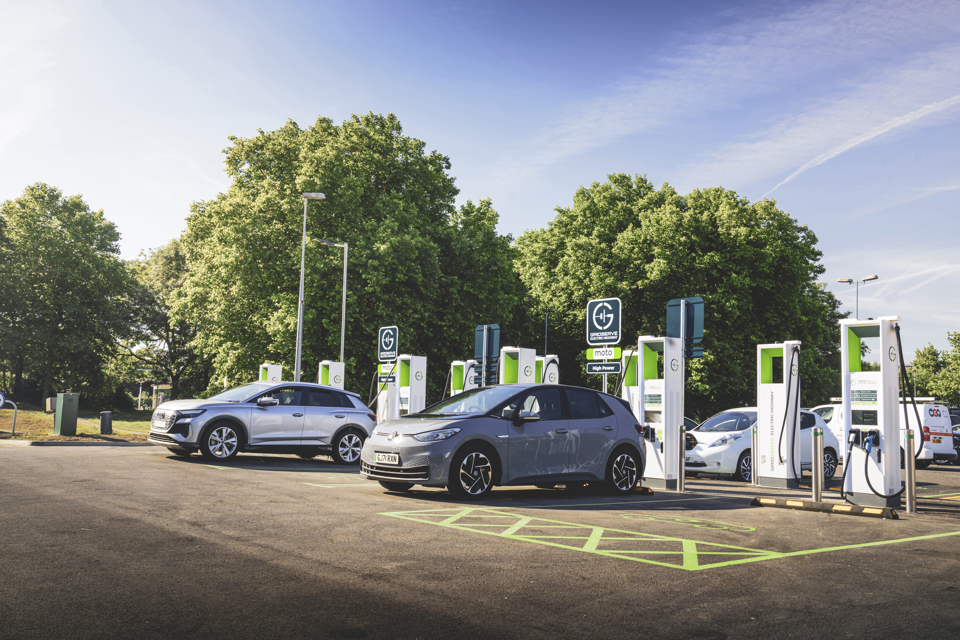A Government target for the deployment of electric vehicle (EV) charge points at motorway services has been missed, new analysis shows.
Every motorway service station in England was supposed to have at least six rapid or ultra-rapid chargers by the end of 2023.
However, the RAC suggests that just two out of five (40%) of services have the requisite chargers in place.
Analysing data from Zapmap in December, the RAC found that 178 faster charge points had been installed at motorway services since April. But only 46 of 119 sites now had six of these high-powered chargers in place by year end.
Leicester Forest on the M1, Tebay South on the M6, and Barton Park on the A1 (M), had no charging facilities of any kind.
RAC spokesman Simon Williams said: "There is undoubtedly an eagerness among charge point companies and motorway service operators to install these types of units but unfortunately, it's often the high-power cabling to the grid that's the major barrier which is out of their hands.
"More clearly needs to be done to make this process simpler than it is currently."
In November’s Autumn Statement, the Government announced changes to planning rules and reforms to the grid connection process in an effort remove some of the biggest barriers to the rollout of EV charge points at motorway services.
Furthermore, the Department for Transport (DfT) announced a £70 million fund to help motorway service areas upgrade network capacity to cater for ultra-rapid EV charge points in December.
Transport secretary, Mark Harper, outlined plans for up to 10 trial sites in England, with the Government’s Rapid Charging Fund cover a portion of the upgrade costs.
The pilot involving up to 10 schemes is being delivered by National Highways and will help gather evidence to inform the design of a full fund.
A spokesperson for the DfT told the BBC: “Around 96% of motorway services now offer charging facilities for drivers.
“As well as our £70m pilot to help roll out ultra-rapid charge points on motorways, we are driving forward the biggest reforms to our electricity grid since the 1950s - halving the time it takes to build networks and speeding up connections.”
However, Asif Ghafoor, CEO of BeEV, says it is "hardly surprising" that the UK is falling short on its EV infrastructure targets.
"There’s a lack of chargers nearly everywhere outside of London, and motorway charging is not the answer," he said. "Instead, we need ultra-rapid charging hubs close to our main roads to speed up charge times and reduce service station congestion - but every link in the chain is doing something wrong.
“Landowners are slowing the process down, sitting on their land and not giving it up for charging hubs. The way people recharge their car should look more like charging your phone than filling up at the pump – little and often is usally quicker than one long charge.
“Once a charging provider gets access to a site (which in itself can be a long process), they then have to argue with power suppliers.
"Our national grid was built in the 60’s - there’s only so much power to go around.
"To apply for the rights to access this power, a charging provider will often have to submit multiple applications. This clogs up network operators’ time and slows the entire process to a crawl.
"Ambitious targets aside, the reality is that every leg of the planning, permissions, sourcing power and building process slows an installation down. From that first conversation to an asset being energised, it takes on average 18 months.
"That's for a privately owned site - for a publicly owned site, it can take up to three years.
"Anyone can see this is nowhere near quick enough to keep up with the amount of drivers transitioning to EVs.”





















Login to comment
Comments
No comments have been made yet.